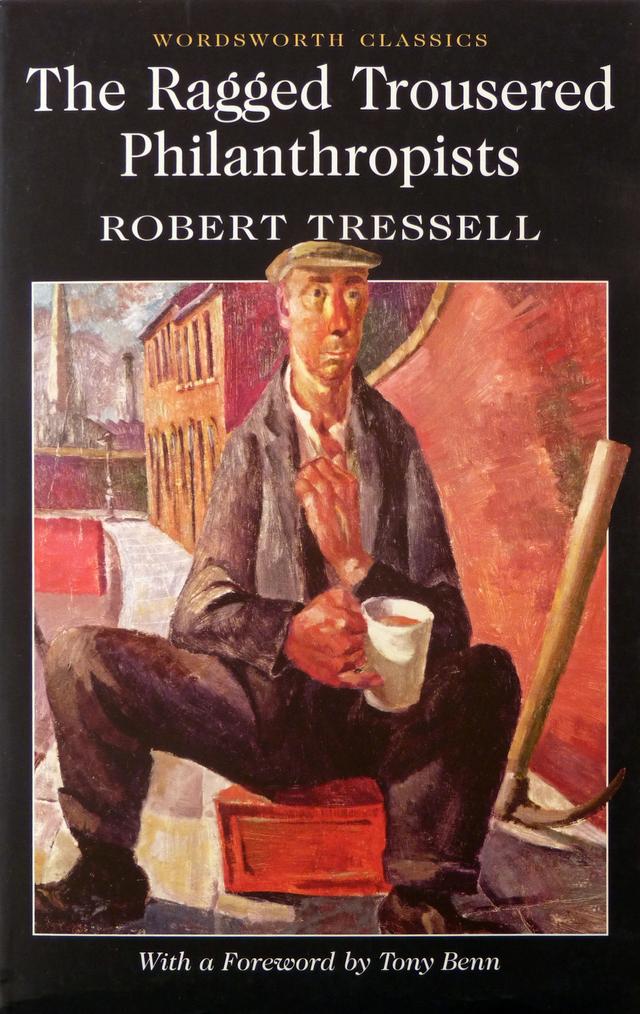The Ragged Trousered Philanthropists tells the story of a group of working men who are joined one day by Frank Owen, a journeyman-prophet with a vision of a just society. Indicting the 'philanthropy' of the working class, who toil solely for the benefit of their masters, and initiating them into the secrets of the 'Great Money Trick' which alienates them from their labour, Owen's spirited attacks on the greed and dishonesty of the capitalist system rouse his fellow men from their political quietism. A masterpiece of wit and political passion and one of the most authentic novels of English working class life ever written.
“Robert Tressell’s lengthy novel The Ragged-Trousered Philanthropists gives a searing early 20th century analysis of the relationship between working class people and their employers. Tressell, real name Robert Noonan, was a house painter, and George Orwell praised his ability to convey ‘the actual detail of manual work and the tiny things almost unimaginable to any comfortably situated person which make life a misery when one’s income drops below a certain level’. The tone of the book can be gauged from the following extract, where there is mention of an inquest into ‘the third case of death from destitution that had occurred in the town within six weeks. The evidence showed that the man was a plasterer who had walked from London with the hope of finding work somewhere in the country. He had no money in his possession when he was found by the policeman; all that his pockets contained being several pawn tickets and a letter from his wife, which was not found until after he died, because it was in an inner pocket of his waistcoat. A few days before this inquest was held, the man who had been arrested for stealing the turnips had been taken before the magistrates. The poor wretch said he did it because he was starving, but Aldermen Sweater and Grinder, after telling him that starvation was no excuse for dishonesty, sentenced him to pay a fine of seven shillings and costs, or go to prison for seven days with hard labour. As the convict had neither money nor friends, he had to go to jail, where he was, after all, better off than most of those who were still outside because they lacked either the courage or the opportunity to steal something to relieve their sufferings’. Tressell died in 1911, aged 40; he was buried in a pauper’s grave. Thanks to his daughter Kathleen his novel was posthumously published in 1914.”
— Lynette Cawthra
This book is also available as a paperback, ebook, audiobook and mp3 from Barking & Dagenham Libraries
